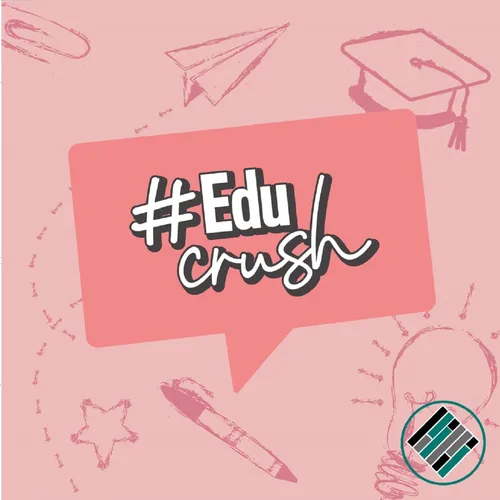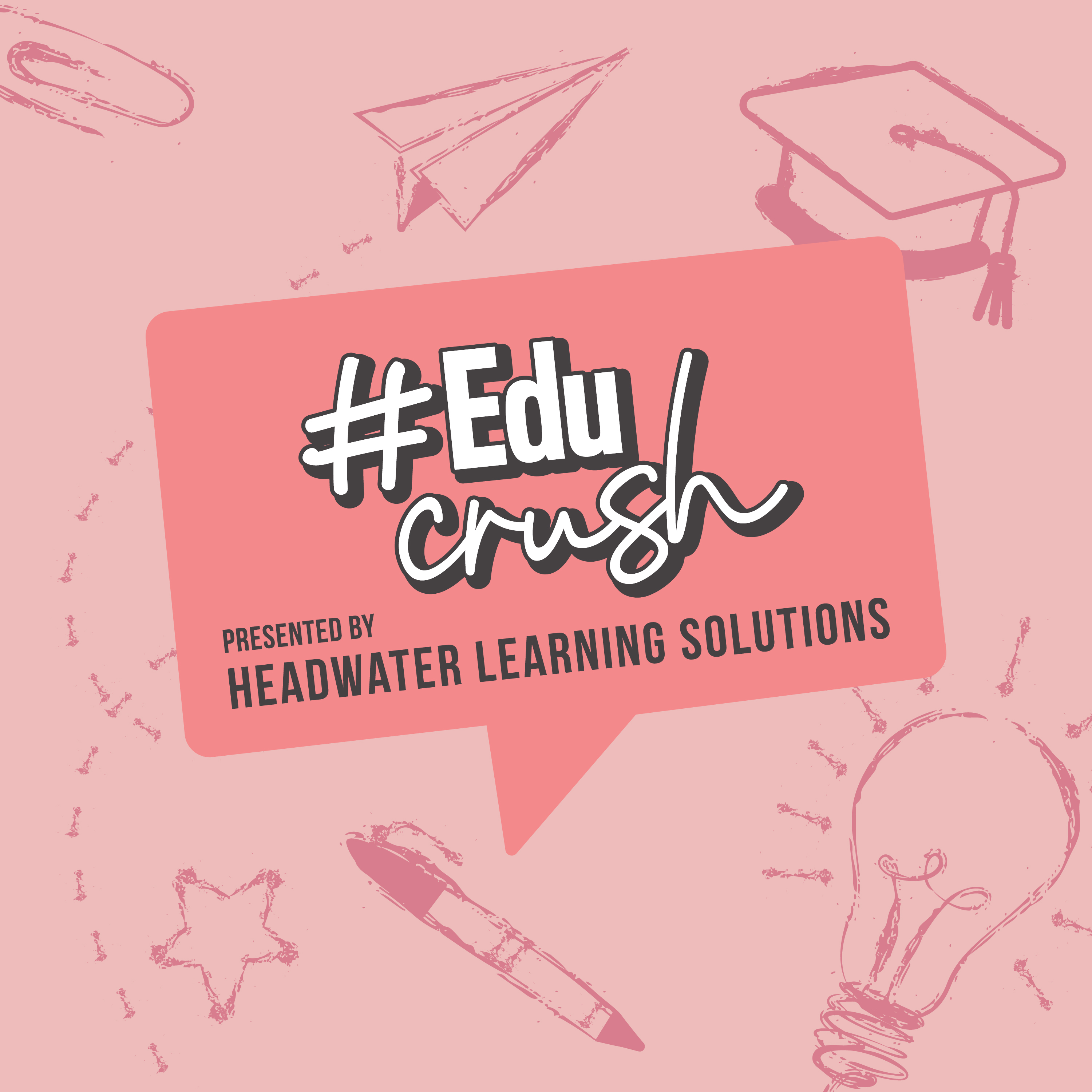
#EduCrush
A celebration of the brave humans who are reimagining education through a liberating praxis. Hosted by assessment specialist Natalie Vardabasso, and teacher Alex Noel, this is a show for change agents who aren't afraid to ask uncomfortable questions, embrace complexity, and continuously empower themselves and others. Your next #EduCrush is right here!
- Update frequency
- every 6 days
- Average duration
- 44 minutes
- Episodes
- 99
- Years Active
- 2021 - 2024

43 – Activating Agency to Grow Readers (w Penny Kittle)
Why do so many teenagers hate reading? Renowned author and Literacy advocate Penny Kittle believes it has everything to do with a lack of “book love” and that teachers have the capacity to ignite it.…

42 – Decolonization, Love and Witnessing at Mill Bay Nature School - Pt. 1 (w Cayla Brown & Kim Ondrik)
In the simplest of terms, decolonization means moving from a triangle to a circle. From a hierarchy to a community. In the episode, Natalie joins the Head Learner of the Mill Bay Nature School, Kim O…

42 – Intergenerational Learning, Sustainability, and Space at Mill Bay Nature School - Pt. 2 (w Cayla Brown & Kim Ondrik)
We’ve all heard the adage “with age comes wisdom” but what does it mean to be wise? If we view our work as educators through the lens of sustainability and legacy, the wisest thing we might do is lif…

Strategy Hack: Processing Speed (w Erin Ellis)
This week we’re talking strategy. How we can we best help students who struggle with processing speed? When our students encounter difficulties, it can be heart breaking but how can we help students …

41 – Narrating the Learning Journey using Self-Assessment & Portfolios (w Katie White)
Too often, self-assessment is treated as a capstone, rather than a catalyst, and portfolios as a scrapbook, rather than a learning tool. On this episode, we go beyond the mistakes we’ve made with sel…

Project Feature: Going Gradeless (w Charlotte Nixon)
Going gradeless is one of those terms that generates excitement or dread, depending on your interpretation. It’s a scary notion as a teacher to just take a chance and dive in. Charlotte Nixon, a seas…

40 – How Principals Build Trust (w Tim Carlson)
Teaching has always been a profession that demands a lot from its practitioners. Between the global health crisis, political unrest and helping students navigate what the world is and is becoming, te…

39 – Reclaiming Inquiry-Based Learning through Co-Design (w Trevor MacKenzie)
A misconception about inquiry-based learning is that it means leaving students to “discover” the curriculum on their own. This couldn’t be further from the truth. Trevor MacKenzie is a high school te…

38 – Disruption, Storytelling, and Values in a Thinking Classroom (w Peter Liljedahl)
Many of our institutional norms are causing “studenting” behavior that stifles thinking. Dr. Peter Liljedahl’s research aims to disrupt this behavior through “contrarian experimental methodology” and…

37 – How can Assessment Cultivate Equity, Learning & Community? (w Adelee Penner)
Assessment has many negative emotions attached to it due to the history of the word, yet it has so much potential to cultivate the equitable learning communities we all dream of. Adelee Penner has ex…

36 – The Learning Diamond: A Mentor, a Champion, a Coach, and Ourselves
Though we are learning more about the importance of human connections in schools and workplaces, which are the relationships that actually drive learning? In this solo episode, host Natalie Vardabass…

35 – Elevating Sex Ed in the Curricular Hierarchy (w Alex Noel)
We all have memories of Sex Ed that are filled with embarrassment and shame. How might we change our collective experience of this topic? What structural barriers create this problem? How might we re…

34 – Reimagining Education with Passion, Purpose, and Projects (w Loni Bergqvist)
In nearly every field of work, we are quick to jump on the latest and greatest strategy leading to a habitual focus on what we do, rather than a deeper analysis about why we do it. Project-based lear…

Project Feature: Nature Documentary Film Festival (w Jaclyn Demmers)
On the episode, we unpack how students were challenged to deepen and demonstrate their understanding of Ecosystems and Visual Literacy in a grade 7 interdisciplinary project. Teacher Jaclyn Demmers a…

33 – Unpacking Teacher Leadership (w Randy Swift & Pedro Dones III)
What is the truth about teacher leadership? Is it an exciting opportunity to become a change agent, or, is it just another managerial manifestation of the status quo? Randy Swift and Pedro Dones III …

BONUS – EduPodlooza 2021: Poetry Slam
EduPodlooza is an all-day marathon, live-stream event featuring some of the dopest names in the education podcast space. The day is filled with many different segments including round tables, a radio…

32 – Coaching Change in Schools (w Tim Lewis)
Despite our best intentions, collaboration in schools often looks more like cooperation (at best), or polite dysfunction (at worst). As an NCAA div 1 basketball coach and strategic business developme…

Project Feature: Forest of Fright (w Leeanne McLim)
In this project feature episode, we explore how drama teacher Leeanne McLim reimagined the classic “Haunted House” project in response to the pandemic. While students learned a myriad of life skills …

31 – What is the literacy of our lives? (w Brent Saccucci)
The 21st century demands an updated definition of literacy and an expansion of our understanding of what constitutes a “text.” For instance, how might we read and write our relationships? Our institu…